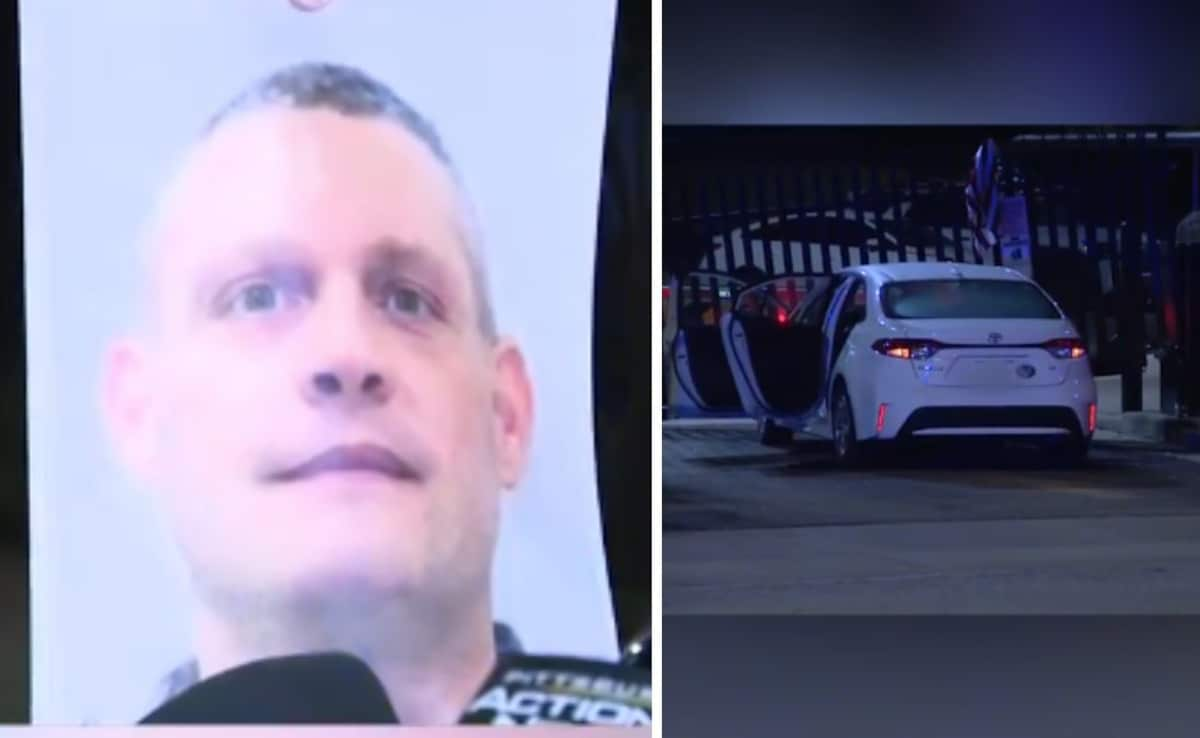In Kamenka village in Russiaâs southern Rostov region, close to the Ukraine border, Alexei Safonov, 47, was horrified at the news that Russia began its attack last week. Then he got to work as chief engineer at an ice-skating rink, and was sickened to find his colleagues celebrating.
âThe feeling was itâs high time we showed what we could do to those âNazis,â so itâs high time we started this operation,â he said, referring to Putinâs claim that he would âdenazifyâ Ukraine and its leadership. âThat made me feel really dejected and depressed. People around me are enthusiastic about it. When I look at them, I donât see the light at the end of the tunnel.â
That night he wrote an anguished social media post, lamenting the âhorror and shameâ of a war that âwill be catastrophic.â It initially received 19 comments, most attacking him. A friend, a local policeman, warned him to delete it, but he refused.
At work the next day, the general director of the complex stormed in, shouting and swearing at Safonov.
âHe said, âEither you remove that post or we donât need people like you around here.â He told me to sign a resignation letter but I just packed up and left,â Safonov recounted.
Later, three police armed with machine guns came to his home, arrested him and charged him with showing disrespect for society and the Russian Federation. He faces court on Friday, and fears that authorities may concoct a more serious charge.
The warâs seismic impact is just beginning to dawn on many Russians, deepening these fissures in society. State television hosts tell viewers that the sanctions prove the West hates Russians.
Europeâs airspace slammed shut, and Russiaâs now-toxic brand was shunned in sports, chess, ice hockey, football, motor racing, and by art galleries, Harley Davidson, Disney, âThe Batmanâ movie, the Eurovision song contest, luxury car companies, Maersk shipping line, the International Olympic Committee, major oil companies, Norwayâs sovereign wealth fund and many more.
The cascading effect was swift. Google blocked YouTube channels connected with state-run media RT and Sputnik. Even Europeâs far-right leaders and strongmen in Central and Eastern European balked. The ruble crashed and the Central Bank stopped trading for two days as Putin barred Russians from depositing forex into accounts or sending it abroad.
When Foreign Minister Sergei Lavrov stood up to speak at the Geneva Disarmament Conference Tuesday, almost every delegate stood up and left the hall. When senior official Vyacheslav Volodin flew home from an official trip on the weekend, his plane was turned away from airspace in Sweden and Norway.
To be fair, outside of liberal circles, the public criticism is still a relative trickle in a country where dissent is not tolerated. It has, however, included a few powerful oligarchs, although they have little to no sway over Putin.
Oleg Deripaska, a billionaire industrialist, called for peace âas soon as possibleâ on the Telegram messaging app. Ukraine-born mogul Mikhail Fridman wrote a letter to staff at LetterOne, first reported by the Financial Times, saying that war could never be the answer.
State television host Ivan Urgant posted a black square on his Instagram feed on invasion day, along with the words âFear and Pain. No to war.â His show the next day was canceled and itâs not clear it will ever air again.
Even the daughter of Kremlin spokesman Dmitry Peskov posted a black banner on social media with the words âNo to war,â though she swiftly deleted it.
Anissa Naouai, chief executive of Maffick, a company with RT links and one of Putinâs staunchest defenders for years, announced Tuesday she was âcutting all ties with RT,â posting a black banned on Twitter with the words âRussia without Putin.â
Apolitical people felt the need to make their opposition clear. Peter Svidler, Russian chess grand master, usually tweets about chess, wordle and dogs. But last week he wrote that it was impossible to stay silent. âNo to war,â he posted.
âLetâs at least get some things stated live on air. I do not agree with the war my country is waging in Ukraine. I do not believe Ukraine, or Ukrainian people, are my enemies, or anybodyâs enemies,â he said speaking Tuesday on a Chess 24 stream.
Almost 6,500 protesters in dozens of cities have been arrested since the invasion, according to rights group OVD-Info. Psychiatrists, doctors, architects, journalists, actors, historians, computer programmers, directors, orthodox priests and others, signed open letters protesting the war.
If the Putin did not change course, Russia would âtake its place as an aggressor and rogue state, a state that will bear responsibility for its crimes for generations,â said Ivan Zhdanov, director of the Anti-Corruption Foundation, headed by jailed dissident Alexei Navalny. Zhdanov spoke in a video urging a national campaign of disinformation.
But as Russiaâs economy came under intense pressure from sanctions, Russian officials doubled down and hardened their rhetoric.
In a Russian Foreign Ministry tweet Monday, spokeswoman Maria Zakharova questioned if âthe process of denazification in Germany after the end of World War IIâ was really complete, commenting on Germanyâs decision to send arms to Ukraine.
Lawmaker Andrei Klimov called for treason charges against those who âcooperated with foreign anti-Russian centers bringing obvious detriment to our national security.â
The older generation of Russians who lap up state television, fear the West and admire Putin for the stability he brought after the chaotic post-Soviet 1990s. But the predictability is gone.
The ice-rink engineer Safonov said ordinary low-income Russians would be most hurt, but wealthy elites âwill be fine as usual. Maybe they will be a little shaken but not much, Iâm sure.
âTo Russia, it means we are going back into the caves,â he said. âI think itâs like the end, for Russia.â
Natasha Abbakumova contributed to this report.
.png)











 English (United States) ·
English (United States) ·  Turkish (Turkey) ·
Turkish (Turkey) ·